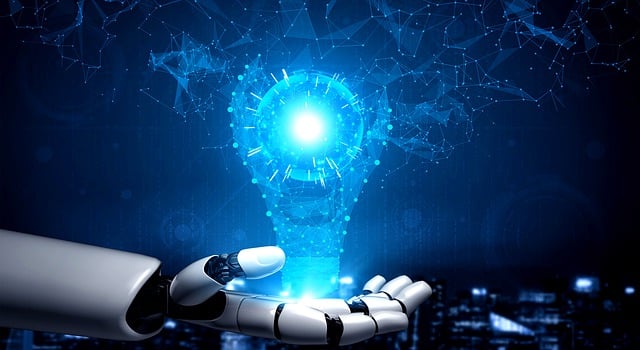AI in Healthcare: From Diagnostics to Personalized Medicine

Artificial Intelligence (AI) is revolutionizing the healthcare industry, transforming how diseases are diagnosed, treatments are administered, and care is personalized. By leveraging advanced algorithms and data analytics, AI enables healthcare professionals to deliver more accurate diagnoses, optimize treatment plans, and enhance patient outcomes.
Table of Contents
In this article, we’ll explore the transformative impact of AI in healthcare, focusing on its role in diagnostics, drug discovery, personalized medicine, and more.
Introduction to AI in Healthcare
AI refers to the use of algorithms and machine learning models to perform tasks that typically require human intelligence. In healthcare, AI applications range from analyzing medical images to predicting patient outcomes, making it an essential tool for improving efficiency and accuracy.
Why is AI Important in Healthcare?
- Efficiency: AI reduces the time needed for diagnostics and administrative tasks.
- Accuracy: Advanced algorithms minimize human error.
- Personalization: AI tailors treatments to individual patient needs.
Key Statistics
- The global AI in healthcare market is projected to reach $187.95 billion by 2030.
- AI-powered diagnostics can detect certain diseases with over 90% accuracy, surpassing human performance in some cases.
AI in Diagnostics
1. Revolutionizing Medical Imaging
AI has significantly improved the analysis of medical images such as X-rays, MRIs, and CT scans.
- Radiology: AI-powered tools like Google’s DeepMind can detect abnormalities in medical scans, including fractures and tumors.
- Ophthalmology: AI systems like IDx-DR identify diabetic retinopathy with high precision.
2. Early Detection of Diseases
AI excels at identifying patterns in large datasets, enabling early detection of diseases.
- Cancer Detection: Tools like PathAI analyze biopsy samples to detect cancerous cells more accurately than traditional methods.
- Cardiovascular Health: AI-powered wearables monitor heart health and predict potential cardiac events.
3. Predictive Analytics for Patient Outcomes
By analyzing historical patient data, AI can predict potential health risks.
- Sepsis Prediction: AI models alert clinicians to signs of sepsis before symptoms manifest.
- Hospital Readmissions: Predictive tools identify patients at risk of being readmitted, enabling preventive measures.
AI in Drug Discovery and Development
1. Accelerating Drug Development
Traditional drug discovery processes are time-consuming and expensive. AI significantly reduces development timelines by identifying potential drug candidates quickly.
- Case Study: Insilico Medicine used AI to identify a potential drug target for fibrosis in just 46 days.
2. Repurposing Existing Drugs
AI analyzes existing drugs to identify new applications, speeding up the approval process for new treatments.
- Example: AI was used during the COVID-19 pandemic to identify existing medications that could be repurposed.
3. Clinical Trial Optimization
AI enhances clinical trials by:
- Selecting suitable candidates based on genetic and medical histories.
- Monitoring patient responses in real-time.
AI in Personalized Medicine
1. Tailoring Treatments to Individuals
Personalized medicine uses AI to customize healthcare to an individual’s genetic profile, lifestyle, and medical history.
- Pharmacogenomics: AI predicts how patients will respond to specific medications, reducing trial-and-error prescribing.
- Targeted Cancer Therapies: AI identifies genetic mutations in tumors to suggest targeted treatments.
2. Precision Monitoring and Care
AI-powered devices continuously monitor patients and provide real-time feedback.
- Diabetes Management: AI apps like MySugr analyze blood glucose levels and offer dietary suggestions.
- Chronic Disease Management: Wearables track vital signs and alert users to potential issues.
AI in Virtual Health Assistants
1. Enhancing Patient Engagement
AI virtual assistants guide patients in managing their health:
- Answering questions about symptoms.
- Providing medication reminders.
- Offering health tips tailored to individual conditions.
2. Telemedicine Integration
AI tools enhance telemedicine platforms by:
- Analyzing patient symptoms during virtual consultations.
- Suggesting next steps or referrals to specialists.
Example: Babylon Health’s AI chatbot performs pre-consultation triage, saving time for healthcare providers.
Challenges of AI in Healthcare
1. Data Privacy and Security
Healthcare data is sensitive, and AI systems require access to vast amounts of patient information. Ensuring data privacy and compliance with regulations like HIPAA is critical.
2. Ethical Considerations
- Bias in Algorithms: AI systems can perpetuate biases present in training data, leading to unequal outcomes.
- Decision-Making Authority: How much control should AI have in critical healthcare decisions?
3. Integration with Existing Systems
Many healthcare facilities face challenges in integrating AI tools with legacy systems.
Future Trends in AI Healthcare
1. AI-Powered Robotics
- Robotic surgeons equipped with AI assist in performing minimally invasive surgeries with unparalleled precision.
2. Real-Time Health Monitoring
- Advanced AI wearables monitor patients’ vitals and predict potential emergencies, like strokes or heart attacks.
3. Global Access to Healthcare
- AI enables telemedicine services in underserved areas, bridging healthcare gaps.
4. Enhanced Mental Health Support
- AI chatbots like Woebot provide mental health support through cognitive behavioral therapy (CBT) techniques.
AI is transforming healthcare, from improving diagnostic accuracy to enabling personalized treatment plans. While challenges such as data privacy and ethical concerns must be addressed, the potential benefits of AI in healthcare far outweigh the risks.
As we continue to advance in AI technology, the future of healthcare looks promising, with improved outcomes, increased efficiency, and more accessible care for all.
